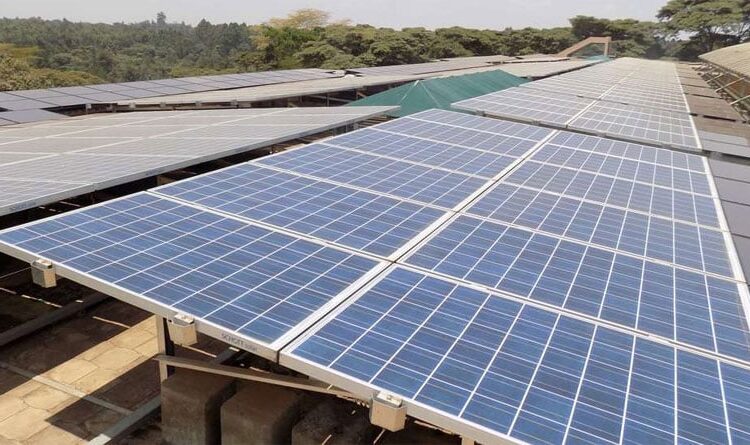
Companies
UK firm, Globeleq to invest Sh4.6bn on solar plant in Malindi
Tuesday February 13 2024
Solar power. FILE PHOTO | NMG
UK-based private power firm Globeleq will spend about Sh4.6 billion to set up a battery storage for its Malindi solar plant to supply electricity during peak demand.
The firm told the Business Daily that it had already received the green light from the Energy and Petroleum Regulatory Authority (Epra) to start the installation.
Solar plants are at their peak during the day but demand for electricity peaks in the evening, necessitating the move to install the plant whose capacity is targeted at between 40 Megawatts-hour.
Read: Globeleq plans battery at 52MW Malindi plant
Globeleq spent $69 million (Sh7.83 billion at the exchange rates of the time) to set up the 52-megawatt peak (MWp) Malindi solar plant that started supplying electricity to the national grid in 2021.
“The Malindi project represents an investment of approximately Sh12.5 billion. We completed a feasibility study in 2023 and are now working with the Ministry of Energy on the progress of the project,” Globeleq said.
Peak demand for electricity occurs between 8pm and 8.30pm in the coastal region, and between 7.30pm and 8pm for the rest of the country.
Globeleq added that the battery storage is one of the projects listed as part of the UK-Kenya Strategic Partnership announced at the United Nations Climate Change Conference in November 2022.
Quality battery storage provides a solution to achieve flexibility, enhance grid reliability and power quality and accommodate the scale-up of renewable energy, helping reduce the impact of adverse weather patterns.
Kenya has a solar installed capacity of 210MW spread across five plants —Garissa Solar (50MW), Cedate (40MW), Selenkei (40MW), Malindi Solar (40MW) and Alten Solar (40MW).
The country has ramped up efforts to have battery storage for solar and other renewable energy sources, in order to maximise their potential given that their production depends on weather patterns.
Despite generating at least 90 percent of the electricity from clean sources, the intermittent nature of supplies from wind and solar means that Kenya has to tap the dirty thermal plants to boost supply during peak demand.
Also read: Menengai power plant set up to start after Sh18bn funding
Solar accounted for three percent or 443.95 Gigawatt-hours (GWh) of the 6,035.00 GWh produced in Kenya in the year that ended June 2023, behind wind at 16 percent, hydro at 19.33 percent and geothermal (45.4 percent).
→ jmutua@ke.nationmedia.com






